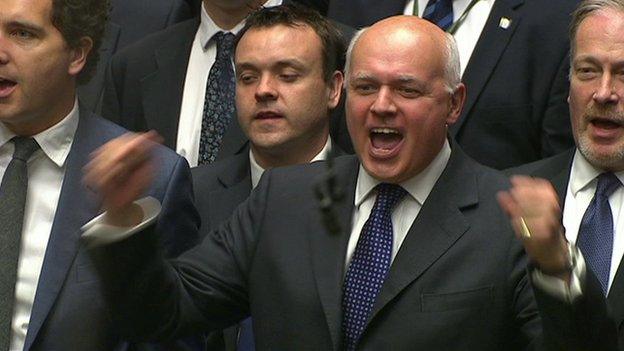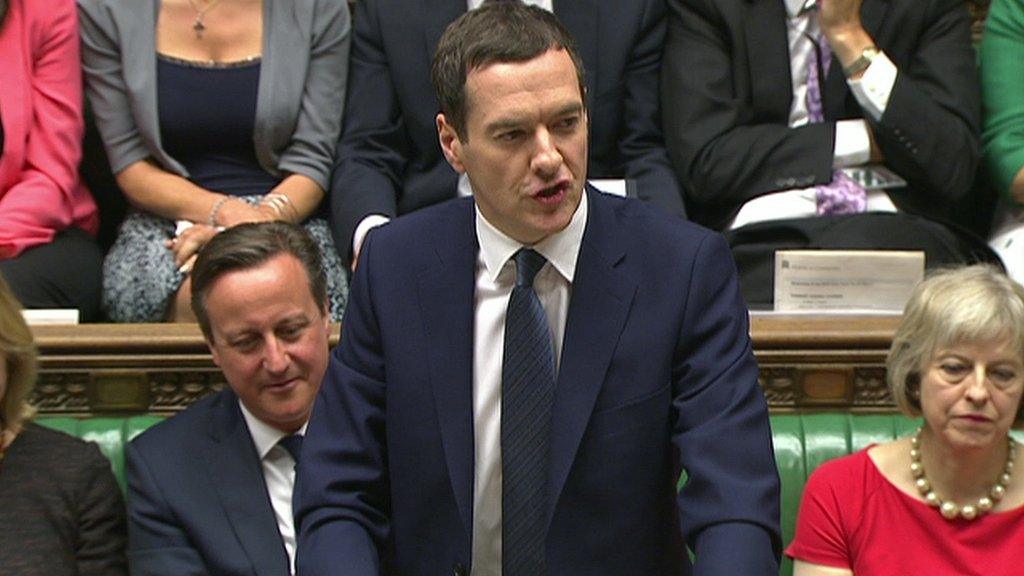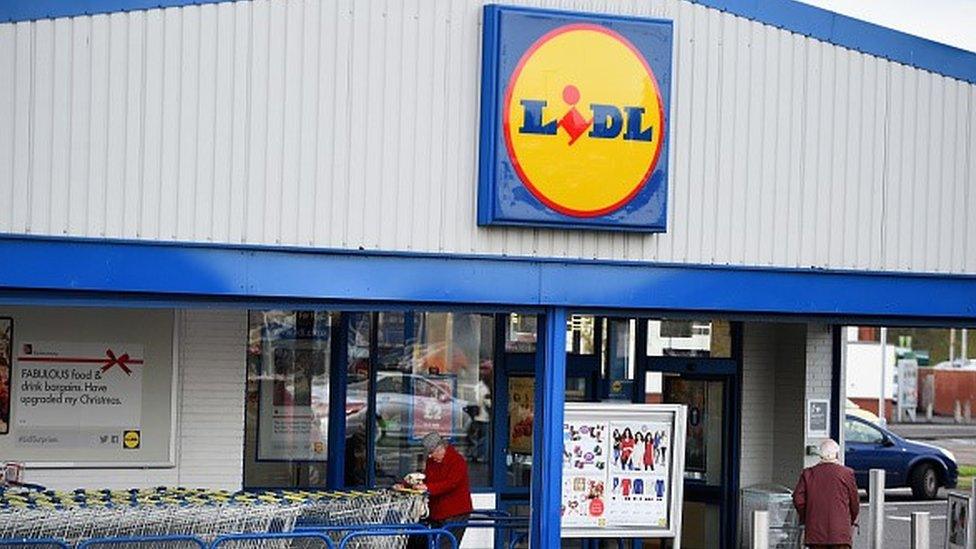Six million workers paid 'less than the living wage'
- Published
- comments
Almost six million workers in the UK are paid less than the living wage, a study suggests.
The data showed a "worrying trend" of part-time, female and young workers being most likely to earn below the figure, researchers found.
The living wage, promoted by the Living Wage Foundation, external, is currently £7.85 an hour and £9.15 in London. It is not compulsory for employers to pay it.
The government said it was "determined to move to a higher wage economy".
The accountancy firm KPMG said its research showed that the proportion of workers earning less than the living wage had risen for three years in a row.
The wage is well above the compulsory national minimum wage, and more than the new national living wage which the government has announced will come into force next April.

Living wages: how does it add up?

The living wage is an informal benchmark, not a legally enforceable minimum level of pay. It is currently £7.85 and £9.15 in London
The national minimum wage is the compulsory minimum level of pay set by the business secretary each year on the advice of the Low Pay Commission. It stands at £6.70 an hour for adults aged 21 and over, and £5.30 for those aged 18 to 20
In the last Budget the government announced a new compulsory National Living Wage will come into force from April 2016. It will be paid to workers aged 25 and above. It will be set initially at £7.20 an hour and is intended to exceed £9 an hour by 2020


Iain Duncan Smith cheered loudly when the Chancellor announced his National Living Wage plan
Mike Kelly, of KPMG, said: "With the cost of living still high, the squeeze on household finances remains acute, meaning the reality for many is that they are forced to live hand-to-mouth.
"The figures show there is still more to be done if we are to eradicate in-work poverty. For some time it was easy for businesses to hide behind the argument that increased wages hit their bottom line, but there is ample evidence to suggest the opposite, in the shape of higher retention and higher productivity.
"It may not be possible for every business, but it is certainly not impossible to explore the feasibility of paying the living wage."
A government spokeswoman said the new national living wage would give a direct boost in wages for 2.7m people in the UK, "meaning a full-time worker will earn over £4,800 more by 2020".
"Treasury analysis shows women and those based outside London and the South East will be the biggest winners when the new national living wage comes into force," she said.
But Labour's business secretary Angela Eagle said things were getting worse, not better, for many families. "We need to see more better-paid, high-skilled jobs which pay a living wage, but these figures show that progress is slipping," she said.
"At the same time the Tories are making life harder for those on low and middle incomes as they cut tax credits and hit families with a work penalty. People are working harder than ever, but will rightly feel that the government is working against them."
- Published8 July 2015

- Published18 September 2015

- Published18 May 2015

- Published13 July 2012

- Published2 November 2014
